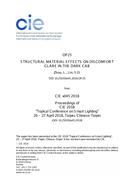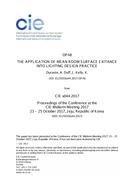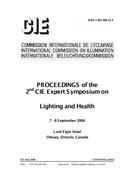Daylight attributes to the aggregate of direct and indirect lights originating from the sun during the daytime. Integrating daylight with electrical lighting can serve as a means to lessen electricity costs for buildings. Geographic location and weather conditions facilitate most of the areas of Nepal to receive on average 12 hours of daylight and have huge energy-saving potential. However, the integration of daylight has not been admitted in the building code of Nepal. Moreover, contemporary architectural design lacks employment of techniques illustrated by illumination engineering to integrate daylight. This study analyses the plausibility and benefits of integrating daylight with electric light for a typical commercial building of Nepal employing the DIALux model and simulation. Simulation integrating energy-efficient electric light and daylight was done to observe illumination levels and light power density. For daylight performance, year-round conditions were observed for three different sky types. Modification of building architecture to integrate daylighting components was also studied. In the later part of the study, analysis was done to observe energy-saving potential and financial benefits. Results designated the plausibility of blending daylight with electrical lighting in the building for all-sky conditions. Extensive energy thrift was observed and was higher with added daylight components. Recommendations of the study to blend light sources and incorporation of daylight components are attainable with current technology and trend in Nepal with accompanying benefits of energy-saving, reduced operation, and reduced maintenance cost.
Product Details
- Published:
- 09/29/2021
- Number of Pages:
- 9
- File Size:
- 1 file , 1.2 MB
- Note:
- This product is unavailable in Belarus, Russia, Ukraine


